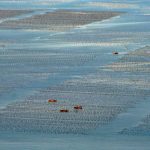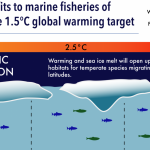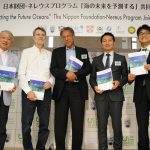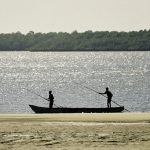West Africa may be one of the most vulnerable regions to climate change. The region is highly dependent on fisheries for livelihoods and as an important food source. The marine resources of West Africa are currently threatened by overfishing and climate change-induced ocean warming could see fish stocks migrate away from the area and into cooler waters. If CO2 emissions continue at their current levels, the region could see a 50% decline in fisheries-related jobs and a total annual loss of US$311 million, found a study by Nereus Program researchers.
The West Africa Regional Fisheries Program was set up by the World Bank and the Sub-Regional Fisheries Commission to reform governance of West Africa’s fisheries and reduce coastal poverty. They held a regional workshop from February 13 to 17, 2017, in Saly, Senegal, with Nereus Program Fellows Vicky Lam (UBC) and Muhammed Oyinlola (UBC) participating and providing their research findings on the fields of climate change and aquaculture in West Africa.
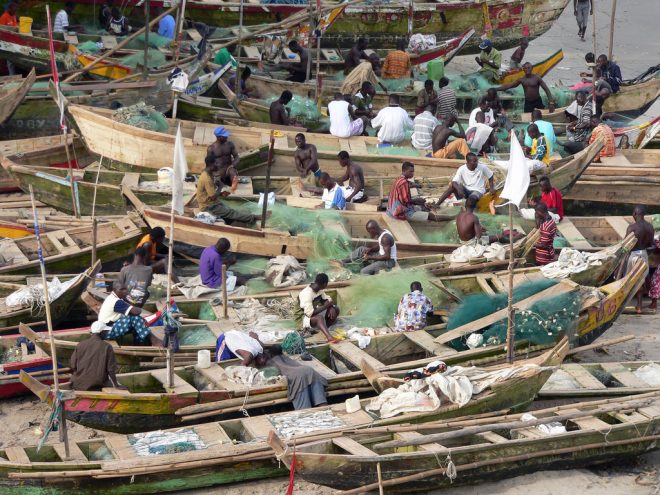
Communities in the region of West Africa are highly dependent on fisheries as a source of income and food. Image: “View from Fort William” by Stig Nygaard, CC BY 2.0.
The West Africa Regional Fisheries Program (WARFP) is structured as a multi-country, multi-phase series of projects with an objective to support countries in maintaining or increasing priority fish stocks and the benefits that they provide to West Africa. The major objectives of the program particularly focus on benefits for poverty alleviation and food security in the region.
About 60 people participated in the workshop, including government representatives, development partners, and regional fisheries organizations from the eight countries involved in the first phase of WARFP and also the two additional countries (Gambia and Coté d’Ivoire) in the 2nd phase. Over the first two days of the meeting, the participants reviewed the status, progress, and shared experiences of the first phase of WARFP, which focused on reducing illegal fishing, strengthening governance for managing targeted fisheries, and increasing local value added to the fish products. The goal of the workshop was to propose recommendations that adequately inform and guide preparation of phase II of the program.
Over the past five years of WARFP, illegal, unreported, and unregulated (IUU) has been reduced in Liberia and Sierra Leone. Also, national policies and laws have been drafted in some countries for managing coastal and small pelagic fisheries. The overall catch level in this region continues to be stagnated over the few years after the first phase of WARFP has been introduced.
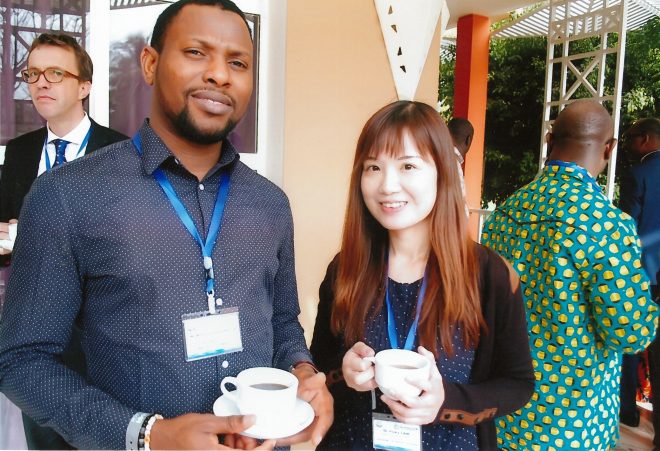
Nereus Fellows Muhammed Oyinlola and Vicky Lam presented on climate change and aquaculture projections for West African fisheries.
Vicky Lam gave a presentation on the projections for the impact of climate change on West African’s fisheries. She gave an overview of the modelling approach used and showed the results of how climate change would lead to reduction in catch potential, fish supply, fish protein, landed values and fisheries-related jobs in each country in this region in the 2050s. Lam also presented on other issues that the Nereus Program is concerned about in this region for example illegal fishing and the potential of mariculture. For illegal fishing, the Nereus Program utilized data from Global Fishing Watch to quantify the prioritization of monitoring and surveillance along the coast. The preliminary work of assessing the feasibility of mariculture in Africa by Muhammed Oyinlola was also presented to the participants. In the presentation, they recommended ways for tackling the challenges of fisheries under the threats of climate change and other stressors.
The participants had particular interest in the climate model and the types of data required for the model, as well as knowing the spatial distribution of coastal species and how the shift in distribution of these species would impact fisheries. They also suggested including the projection of climate change impact on inland fisheries and estuaries fisheries in future analysis.
Over the last three days, there were training workshops for the participants. The training topics included Trade in Fishing Services (TIFS) and the monitoring and evaluation process for the program. During the monitoring and evaluation workshop, participants were trained on how to develop a framework with a main focus on Project Development Objectives (PDO) and identification of PDO indicators, components and intermediate indicators. Participants later prepared national and regional activities by component, which was later reviewed by the facilitators. In a nutshell, the last three days were used to develop participant’s skills towards the objectives of the WARFP project in preparation for the second phase.



